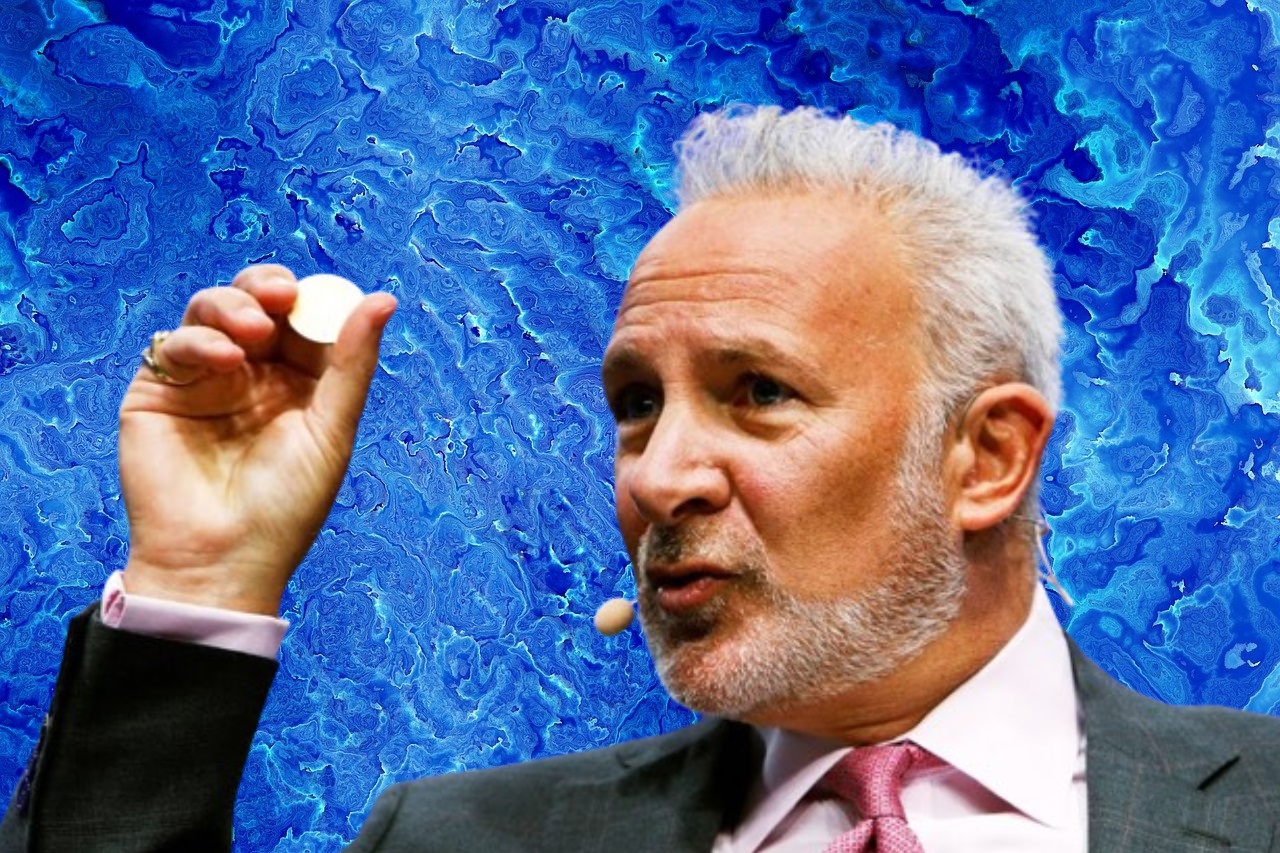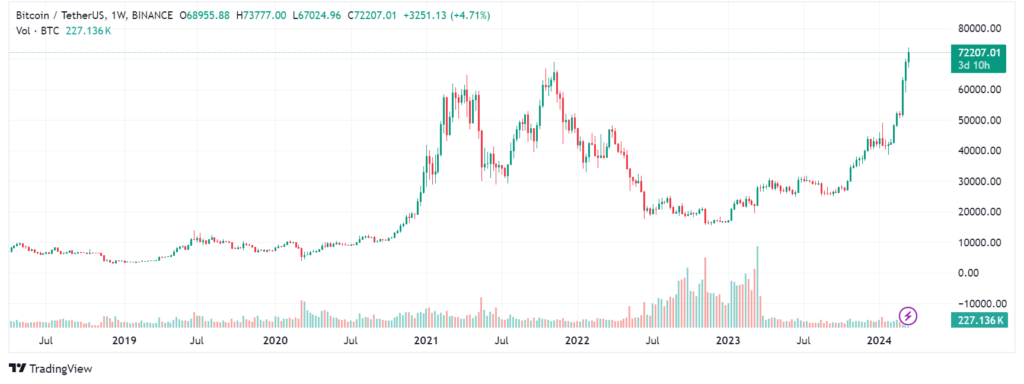
Imagine ignoring the opportunity to buy Bitcoin for as little as $0.30 in 2010 – would you regret it? As the 2024 bull run surges to a new all-time high, infamous Bitcoin critic Peter Schiff is feeling the sting despite labeling the digital asset a Ponzi.
Prominent financial markets spectator and gold proponent Peter Schiff has become a notorious face in the crypto community after years of sustained criticism leveled at Bitcoin.
Schiff’s historic dislike of the top cryptocurrency is so pronounced that it even gave rise to a brief divide in the Schiff family after his son Spencer allocated 100% of his portfolio amid the hype of the 2021 bull run.
This halvening is the one that cuts #Bitcoin’s inflation rate to half of that of Gold.
Gold’s supply is doubling every 70 or so years, but my guess is this may accelerate due to exponential technology gains in the 21st century.
— Willy Woo (@woonomic) March 13, 2024
But in a recent interview with Real Vision CEO, Raoul Pal, Peter Schiff – who once described the world’s most valuable coin as a “Ponzi scheme” – hinted that he regrets not buying Bitcoin in its early days.
Explained: Here’s How Peter Schiff Missed The Bitcoin Boat
In the interview, Schiff hinted that he was introduced to Bitcoin by a colleague in 2010 when it was still in its infancy – far before his first ‘Ponzi’ comments.
This was roughly a year after Satoshi Nakamoto, the mysterious pseudonymous creator of Bitcoin, launched the project in early 2009.
While he initially considered investing, saying he wouldn’t have minded throwing in “$10,000, $50,000, or even $100,000”, the investor ultimately decided against it. Back then, Schiff thought Bitcoin was offering a “ridiculous” value proposition he explained.
The gold investor’s comments are a significant shift from his previous stance. As mentioned, Schiff has been a vocal critic of Bitcoin, and there is commentary insisting that, though valuable, the coin has no intrinsic value and is purely speculative.
Admittedly, as with all cryptocurrencies, Bitcoin price is highly volatile, and prices have been on a cyclical roller coaster ride over the past 10 years.
To illustrate, BTC prices soared to as high as $69,000 before plunging below $16,000 in late 2022 amid the hysteria of the 2021 bull run.

Since then, BTC has weathered a tough crypto winter and recovered steadily, rising to as high as $73,800 in mid-March 2024, as the next halving event approaches.
With 2024 pushing markets into high gear, and bulls stepping up, more volatility is expected, with supporters predicting the coin will increase to as high as $100,000 – in the interview, Pal believes Bitcoin is headed towards $1 million due to institutional inflows.
Currently, Bitcoin commands a market cap of over $1.4 trillion – meaning it recently flipped Silver (a favored asset by Schiff), and is now closing in on Alphabet, the parent company of Google.
The Bottom Line: Wall Street Pouring Billions To BTC Via Spot ETFs
Despite his regret, Schiff remains a Bitcoin critic insisting he doesn’t believe in Bitcoin’s fundamentals, even if he had bought the coin and “kept quiet.”
In the interview, he told Pal that any purchase would have been purely speculative, not an endorsement of the technology itself – which he continues to allege as something similar to a ponzi scheme.
As Wall Street players, including BlackRock and Fidelity, double down on BTC, purchasing more coins for spot Bitcoin exchange-traded fund (ETF) clients, the resulting demand pushes Bitcoin firmly into the picture as a viable asset class.
So far, billions of dollars have been channeled into spot Bitcoin ETFs following the approval of the product in January 2024; and currently through its spot ETF product, IBIT, BlackRock currently controls over 205,000 BTC.
EXPLORE: How to Buy Bitcoin With Apple Pay
Disclaimer: Crypto is a high-risk asset class. This article is provided for informational purposes and does not constitute investment advice. You could lose all of your capital.



